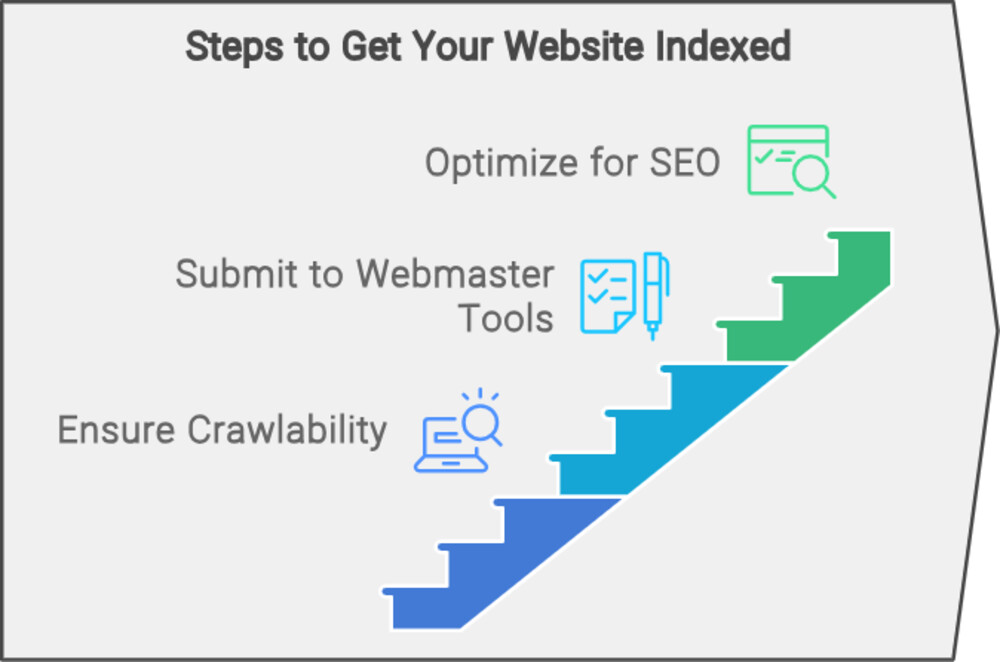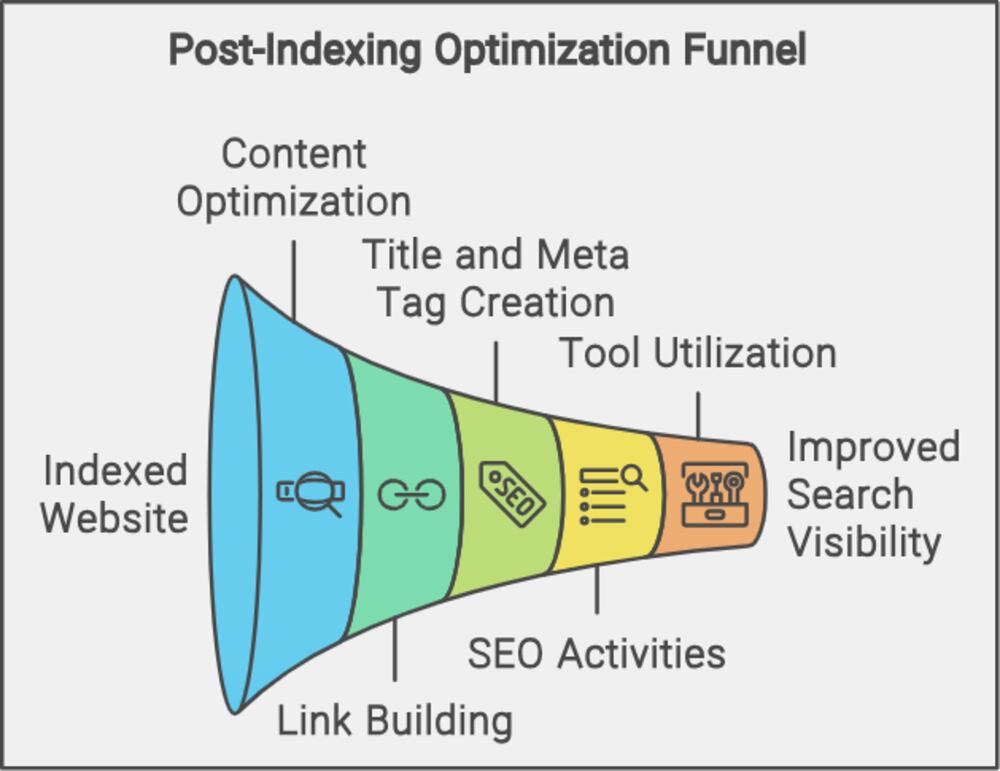How a Customer Engagement Platform Can Transform Your Marketing Strategy
See how a customer engagement platform can transform your marketing strategy with better personalization & interaction.

"Learn why your website may not be appearing on Google and how to resolve the issue. Get expert tips on improving your website's visibility on search engines and attract more organic traffic."
If you’ve been working hard on your website, but search results aren’t quite ready yet, then this post is for you. You may be wondering why your website isn’t showing up in Google search results and how to fix it. Here’s the answer:
One of the possible reasons you may not be appearing on Google search results is that your website hasn’t been indexed yet. Search engines use search engine crawlers, such as Googlebot, to search and index websites in order to show up in search results. If your website hasn’t been crawled or indexed by these search engine crawlers, search results won’t include your site.
In this post, we’ll discuss why your website may not be appearing on Google search results and how to fix it.
Indexing is the process search engine crawlers use to find and analyze content on websites. The search engine crawler reviews each page of a website and stores the content in its search index, which allows it to search for pages quickly when a search query is made.
Without indexing, search engines wouldn’t be able to provide search results that are relevant and up-to-date. Indexing is a crucial part of search engine optimization (SEO) because it helps search engines determine which search queries should display your website.
If your website isn’t indexed yet, search results won’t include your site, and you won’t be able to appear organically in search results. This means search results aren’t quite ready yet, and you should take the necessary steps to ensure your website is indexed.
In order to be indexed by search engine crawlers, you need to submit a sitemap of your website to search engines like Google or Bing. A sitemap is a file that contains all of the URLs on your website and provides search engine crawlers with information about how often they should crawl each page.
Submitting a sitemap ensures search engine crawlers are aware of all of the pages on your website and can begin indexing them. Additionally, you can use tools like Google Search Console to monitor when search engine crawlers are crawling and indexing pages on your website. This allows you to identify any potential issues with search engine crawlers and take action accordingly.
By understanding indexing and taking the necessary steps to ensure your website is indexed, you can make sure search results include your website and help search engines understand which search queries should display your website. Doing so will allow you to appear organically in search results and increase the visibility of your website.
If your website isn’t appearing in search results, it’s likely that the search engine crawlers haven’t indexed it yet. Search engine crawlers search and index websites so they can show up on search results.
If your website hasn’t been crawled or indexed by these search engine crawlers, search results won’t include your site. This means that the search results for your website aren’t quite ready yet.
Fortunately, there are ways to encourage search engines to index your website more quickly. You can submit a sitemap of your website directly to Google, which will help Googlebot understand what content is available on your site and prioritize it when crawling and indexing new sites.
Additionally, you can also create high-quality content and link to other reputable websites; this will help search engine crawlers discover your website more quickly and may lead to better search result rankings for your website. Overall, if you’re not seeing your website in search results, it’s likely because search engine crawlers have yet to index it.
To make sure search engines are aware of your content and prioritize it when crawling the web, follow the tips outlined above. Once search engine crawlers are aware of your site, you should start appearing on search results shortly afterward.

If your website isn’t appearing in search results yet, there are a few possible reasons why. Here are some of the key factors that could be preventing search engines from indexing and displaying your site:
Fortunately, there are a few ways you can fix these issues and get your website to appear in search results. You can use search engine optimization (SEO) tactics like optimizing page titles and meta descriptions, creating a sitemap and creating quality content that is optimized for search engine crawlers.
You can also contact search engine support teams to find out if your website has been penalized or need more help with getting it indexed. With the right approach and a little patience, you can get your website to show up in search results in no time.
Search engine crawlers, such as Googlebot, search and index websites in order to show up in search results. When search engine crawlers visit a website, they “crawl” around the site looking for content that matches search terms and keywords. They then add this content to an index, which makes it searchable by users.
This process is known as “indexing”. If your website hasn’t been indexed yet, it won’t appear on search results—even if you’ve optimized your page correctly. Therefore, if your search results aren’t quite ready yet, it’s possible that your website hasn’t been indexed by search engine crawlers.
To ensure that your website is crawled and indexed properly, you should submit a sitemap to search engines and make sure that your webpages are crawlable by search engine crawlers. You should also use tools such as Google Search Console to keep track of how search engine crawlers interact with your website.
This will help you understand why search results aren’t ready yet, so you can take the necessary steps to get your website indexed properly.
Once search engine crawlers have indexed your website, it should start appearing on search results and users will be able to find it more easily. However, even then, you should continue optimizing and updating content on your website in order for it to stay at the top of search results and attract more traffic.
Getting your website indexed by search engines is an important step in making sure it appears in search results. Though it can be a bit of a waiting game, there are several steps you can take to get your website indexed as soon as possible.
First, make sure that search engine crawlers can access your site. This means ensuring that search engine bots can crawl, parse, and index all the content on your page. You will also want to check for any noindex tags to ensure that search engine bots are not blocked from crawling particular pages or sections of your website.

Next, submit each page of your website directly to search engines with their respective webmaster tools (e.g., Google Search Console). This will help search engine crawlers to find your website more quickly and make sure it gets indexed.
Finally, search engines will typically prioritize pages with higher visitor traffic. Making sure that you engage in search engine optimization (SEO) practices such as optimizing page titles and content, building backlinks, and using keyword-rich anchor text can help increase the ranking of your website on search results.
By following these steps, you can ensure that search results for your website aren’t quite ready yet but will be soon! With a little bit of work and patience, you’ll be able to get your website indexed by search engines and begin appearing in search results.

Once your website has been indexed by search engine crawlers, you’ll start to appear on search results. However, search results may not be completely ready yet. Even though search engines have indexed and added your pages to the database, there are still some steps that need to be taken before they’re fully optimized for search queries.
After indexing, you should focus on optimizing your content and building links to increase your visibility in search engine results further. This includes creating good title tags and meta descriptions as well as engaging in SEO activities like link building and keyword research.
You can also use tools like Google Search Console or Bing Webmaster Tools to get insights into how search engines view your site and make any necessary changes or improvements. With these steps, your search results will become increasingly accurate and comprehensive, helping you to reach a wider audience.

Keywords: search engine optimization, search queries, title tags, meta descriptions, SEO activities, link building, keyword research. Google Search Console, Bing Webmaster Tools.
Indexing is an essential part of search engine optimization and website performance. Without proper indexing, search engines will not be able to search for and display your website in search results properly.
If your website isn’t appearing on search results, it could be because the search engines haven’t indexed it yet. Once your website is indexed, you can start optimizing it with SEO techniques to appear higher in search engine rankings.
Additionally, you should regularly update the content on your site so that the search engine crawlers keep returning to crawl and index your pages. With a successful indexing strategy, you’ll see improved search engine visibility and better overall performance for your website.